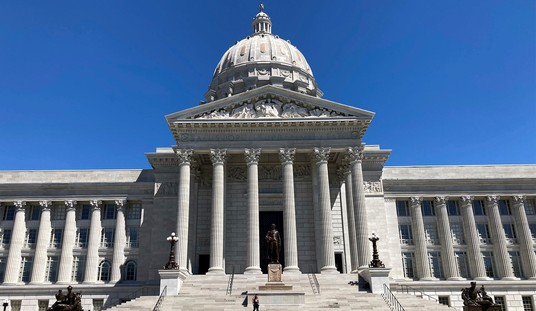And this is why we left that particular political philosophy in the Thirties, where it belongs.
Grim reading on the Obamacare exchanges here from Yuval Levin (short version: the exchanges are in one whole joojooflop situation), with an important caveat:
The character of the conversations I had with these very knowledgeable individuals in the last few days reminded me of something: It reminded me of the daily intra-governmental video conferences and calls in the wake of hurricane Katrina in 2005. I was witness to many of those, as a White House staffer. What I saw in the first days of the disaster quickly fell into a pattern: local, state, and federal officials on the ground would report on what they knew directly—which was often grim—and then they would pass along information they’d heard but hadn’t gotten first hand, which was often much more grim but almost always ultimately turned out not to be true. Some of these stories went public (remember the shootings at the Superdome? They never happened). Some didn’t. They were often reported with a kind of detached authority that made them believable, and they were a function of living in panic amid an unbelievable situation over time.
[snip]
The combination of these conversations over a week has therefore left me thinking that it may not be clear to anyone exactly how deep and lasting these problems will prove to be, which could mean they’re worse than they seem but could mean they’re not as bad as they seem. The technical architecture of the federal exchanges and to a lesser extent the state ones has been very badly screwed up. The problem may be so bad as to render Obamacare’s rollout impossible in practice at this point. But it may not be. And right now no one knows if it will or will not. My gut sense after listening to these insiders, for what little it’s worth, is that it’s not likely that the situation will prove to be much worse than it now seems, and it’s more likely that it will prove to be less bad than it now seems.
But I don’t know, and no one else does either.
As I said on Twitter the other day: there are three bad things about Obamacare right now.
- First, there are structural problems. These are what we’re seeing right now: the site is broke; the interfaces are broke; and there’s a time crunch, thanks to the individual mandate and its noncompliance tax. These problems will eventually be fixed – or, in the last case, triggered*. The Left will then pretend that everything is now great.
- Second, alas, are the functional problems, which is really one problem: the government thinks that it knows better than the market does about what constitutes “proper” health care. To give just one example, that’s why the insurance companies are now required to offer, say, my family contraception and family planning coverage when we need neither; and those services cost money whether they’re used, or not. That means that premiums go up, or deductibles go up – or both! – or the doctor network shrinks – or all three! – and everything else that people have been yelling about. And this problem is not amenable to being fixed by a database rewrite, because the government does not know better than the market does about what constitutes “proper” health care**. Which will come as a big surprise to the Left, who will not really allow itself to understand why people are freaking out that their premiums doubled. See here for some graphic examples of that particular behavior pattern.
- And then there’s the security issue – which should be subsumed under technical issues, but it’s so freaking big an issue it deserves its own bullet point. I am not going to go into specifics here, for reasons that should be obvious, but consider: for the Obamacare exchanges to work you essentially need a database that pulls data from a bunch of other databases, and then aggregate it all into one user file which can then be used to assess that user’s healthcare options. …How much do you trust the government to keep control over that process?
We are seeing ‘progress’ on Problem 1. Problem 2 is a fundamental ideological mismatch; either government can do this properly without messing it up, or it can’t. Problem 3 is going to show up at an undetermined point and eat a lot of Democrats’ brains, not to mention their political careers and future prospects. All in all, expect a long haul on this one***…
Moe Lane (crosspost)
*The Obama administration probably should prepare for the massive political hit that will come when people start getting taxed because their government is currently run by slapdash morons who can’t do IT, and won’t listen to criticism.
**Come, I will tell you a secret: do you want to know why the Republican party remains one of the two major American parties, despite the fact that virtually everybody in the country apparently hates at least one part of it? It’s because the Republicans are right and the Democrats are wrong about a basic fact: when in doubt, government just sucks. Being permitted to operate in accordance with the basic operating rules of the Universe is a powerful advantage.
***Unless the Obama administration delays the individual mandate, of course. On the other hand, they’re not that smart. On the gripping hand, since when does the President have the right to forgive a tax, anyway?














Join the conversation as a VIP Member